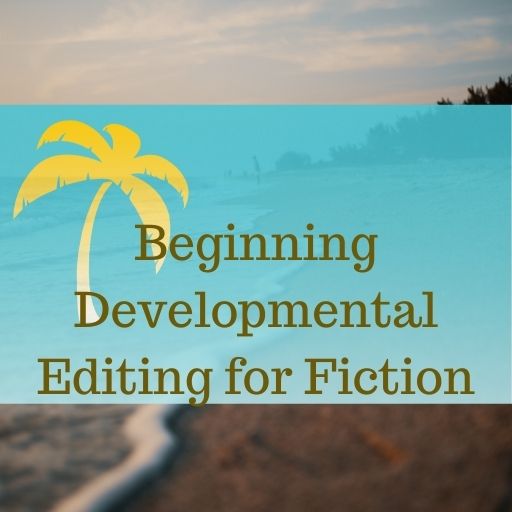Framework for fiction editorial query
A good rule of thumb for a fiction editorial query is to make statements, not ask questions. By focusing on making statements, rather than questions, in your editorial queries, you begin to unpack your assumptions about what literature is, what makes a story good, and so on. I often recommend using the three-party query template to provide sufficient guidance to the author.
The three parts of a good fiction editorial query are:
- Identify the developmental problem
- Explain why it’s a developmental problem for this ms
- Suggest a potential solution.
Each element is important, but it’s #2 – explain why it’s a developmental problem for this ms – that makes developmental editing an art that AI will never be able to do better than you can. We can say “use fewer adverbs” (and so can AI) but until we can say why that matters for this particular ms, we’re just repeating writerly wisdom we’ve heard from other people.
You have to make that knowledge your own, and the way you do that is to test your assumptions. What is your theory of literature? How does fiction work? What makes it successful? What does successful even mean? How is this different from what makes it good?
And the way you test your assumptions about fiction is to state them.
Let’s look at the question, “What is Joe’s motivation?” again.
Once you make it a statement, “Joe’s motivation isn’t clear” you can test it for accuracy. Is it true that Joe’s motivation isn’t clear? Or is it just that Joe’s motivation is insufficient for the task at hand?
Once you’ve decided that it’s accurate, you can further test your assumptions: Why does it matter for this ms that Joe’s motivation isn’t clear? You might say, “Readers will lose interest in a character when they don’t understand why characters do the things they do.”
So far, so good. We can say that, yes, we have given up on stories where we don’t understand the reasons why characters do the things they do. Therefore, one of our assumptions about stories is that characters should have rational, understandable motivations for their actions (even if people in real life often don’t). As readers, we care about the causes of things. This helps us make sense of the world. It’s how we establish meaning. So we can say that generally this is a valid assumption.
Let’s look at the “readers will lose interest” end of this statement. It implies that readers have certain expectations of characters and that for readers to engage with those characters, to invest time in them, they have to understand them.
Establishing motivation is a means authors use to help readers understand character. This is an important part of the framework of the assumption we’re making (the assumption being that it is better to show character motivation than not to show character motivation).
Once we’ve established these assumptions, we can also see that they are, in fact, assumptions and not givens or hard-and-fast rules like purple is spelled p-u-r-p-l-e.
If, for example, an author is trying to show that we do actions and then make up a story to explain them afterward, “Show Joe’s motivation here” isn’t the right guidance.
Recently, I was re-reading Terry Pratchett’s The Color of Magic, a comic fantasy, in which the main character, Rincewind, is something of an anti-hero. His main goal in life is to avoid anything distasteful, unpleasant, and/or painful—so of course all kinds of dramatic and interesting things happen to him, which he hates.
Every now and then, though, he does something brave, gritting his teeth the entire time. He never knows why he does these brave things. If we were to say, “Show Rincewind’s motivation here,” we would be misunderstanding how to apply the principle of “Readers want to know why characters do the things they do.”
In this case, the comedy of the story is because Rincewind has no volition, no goal; he is acted upon and not acting. He is a plaything of fate and he truly resents it—as do we all. So we identify with him not because we are told his motivations but because we feel his essential humanity. In the story, it may be implied that fate is the reason why Rincewind sometimes does brave things to save other people, but we as readers know it is because he is human. There is no need for the author to state this anywhere.
By unpacking your assumptions about story, you will learn when to apply various frameworks to the mss you are editing, which will help you help the author write their story to the best of their ability. Using this 3-part framework for a fiction editorial query will help you do just that.
Join the Club!
New to story editing? Begin at the beginning.







